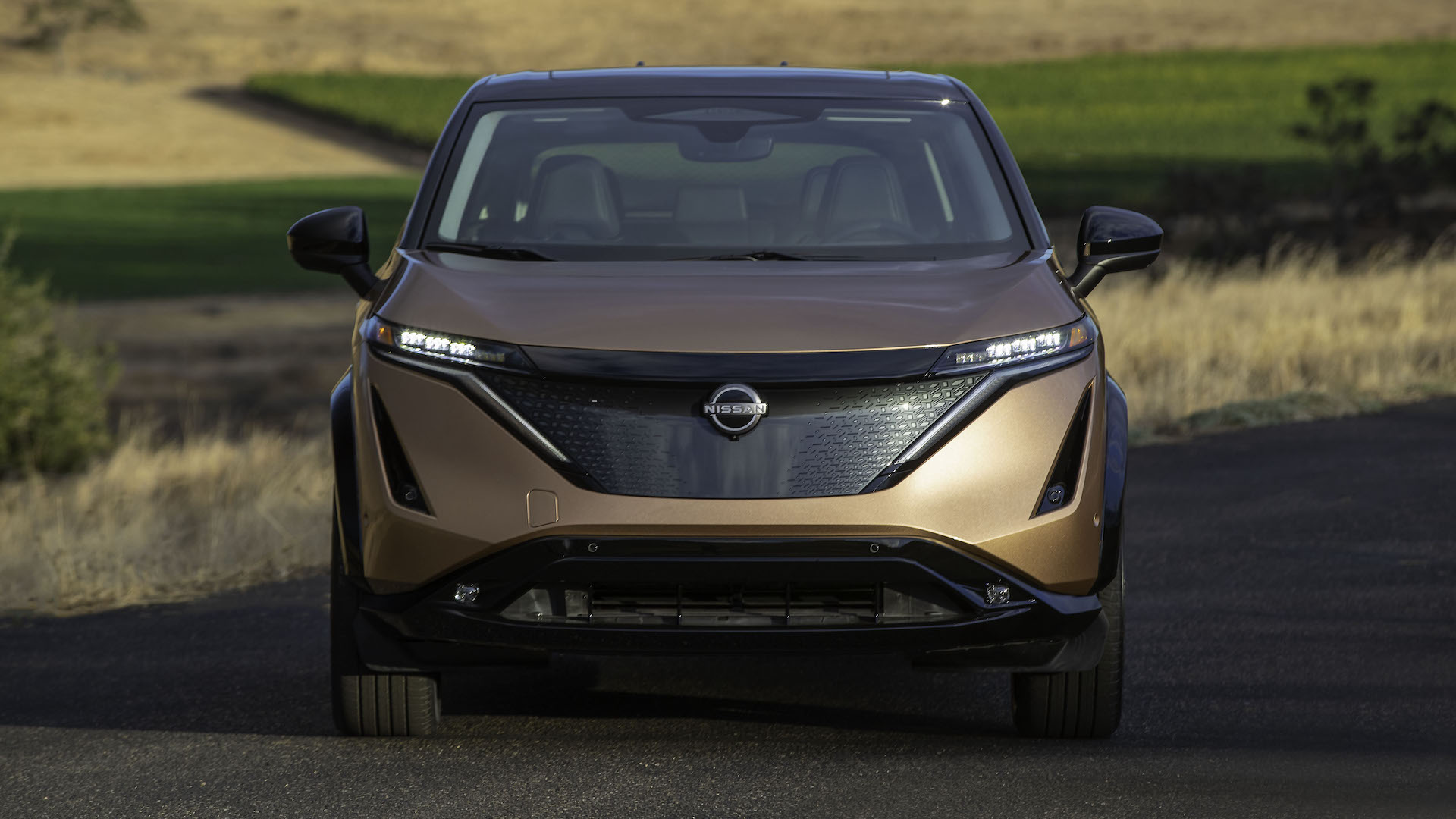

Nissan plans to have six electric vehicles on sale in the United States by 2026: the next-generation Leaf, the Ariya, and four yet-to-be-named models with two being sedans and the other two, crossovers. According to Automotive News, neither the Leaf nor the Ariya will meet the criteria put in place by the Inflation Reduction Act, making them ineligible for the full $7,500 tax incentive. This means it’s going to take three years before any Nissan EV is compliant with the new regulations.
Localization of manufacturing and material sourcing is one of the IRA’s requirements for cars to be eligible for said tax breaks. Car companies need to build their electric powertrains here in the U.S. if they want in on the incentives, and they also can’t source battery components from “foreign entities of concern.”
“We as Nissan are confident that we will be complying for IRA with localization starting in CY 2026,” said Nissan Chief Operating Officer Ashwani Gupta during a recent briefing on electrification strategy.

Some of Nissan’s electric powertrains will be made locally, potentially at the automaker’s plant in Decherd, Tennessee. Nissan also currently gets its batteries from Envision AESC, a joint venture with NEC, and Tokin Corporation, which makes batteries in Smyrna, Tennessee. Nissan might use a second battery supplier but if it does, it will have to source its materials locally. According to Gupta, localizing raw minerals is the toughest aspect of IRA compliance.
Currently, the Nissan Leaf uses powertrains that are shipped in from Japan, fully assembled, which are then put into Leafs at the Smyrna plant, and it doesn’t seem like change is in the works. This means Nissan is relying on its four new EVs to qualify for incentives, which will be hugely important for the brand’s North American future.
Last year, Nissan sold 12,025 Leafs (Leaves?) and 201 Ariyas here, which means EV sales combined for a liitle more than one percent of its 729,350 total sales. However, Nissan hopes to bring that figure up to 40 percent by 2030. IRA-qualifying EVs will be a big part of that strategy, as the difference maker for customers considering Nissan’s EVs or a competitor’s might be which car gets tax rebates. Three years might be a little too long to wait.
Got tips? Send ’em to tips@thedrive.com